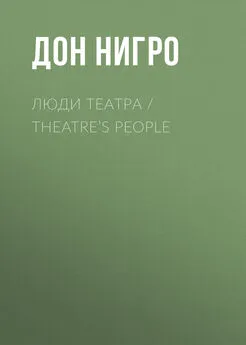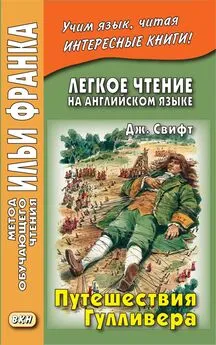The Theatre - Kellerman, Jonathan
- Название:Kellerman, Jonathan
- Автор:
- Жанр:
- Издательство:неизвестно
- Год:неизвестен
- ISBN:нет данных
- Рейтинг:
- Избранное:Добавить в избранное
-
Отзывы:
-
Ваша оценка:
The Theatre - Kellerman, Jonathan краткое содержание
For all its many crimes of passion and politics, Jerusalem has only once before been victimized by a serial killer. Now the elusive psychopath is back, slipping through the fingers of police inspector Daniel Sharavi. And one murderer with a taste for young Arab women can destroy the delicate balance Jerusalem needs to survive.
Kellerman, Jonathan - читать онлайн бесплатно полную версию (весь текст целиком)
Интервал:
Закладка:
Daoud hesitated.
"Is it?" pressed the Chinaman.
"To some extent."
"Meaning?"
"To the Muslims, virginity is everything," said Daoud. "If the father thought Fatma lost hers-even if he just suspected it-he might very well expel her from the family. Excommunicate her. It would be as if she didn't exist."
"Killing her would accomplish the same thing," said the Chinaman.
"I don't see this as a family affair," said Daniel. "That old man was in pain. And after seeing the way they live, the factors I mentioned yesterday seem stronger-the Rashmawis are old-school, by the book. Had they chosen to execute a daughter, it would have taken place in the village-a swift killing by one of the brothers, semi-publicly in order to show that the family honor had been restored. Removing the body and dumping it for outsiders to find would be unthinkable. So would mutilating her."
"You're assuming," said the Chinaman, "that culture overrides craziness. If that was the case, they would have replaced us long ago with anthropologists."
The door to the Rashmawi house opened and Anwar came out, wiping his glasses. He put them back on, saw them, and went hastily inside.
"Now, that's a strange one," said the Chinaman. "Home when his brothers are working. Father banishes him to be with the women."
"I agree," said Daniel. "You'd expect him to be allowed to remain in the background-if for no other reason than to wait on the old man. Sending him in with the women-it's as if he's being punished for something. Any ideas about that, Elias?"
Daoud shook his head.
"A punitive family," Daniel reflected out loud.
"He wasn't surprised when you showed him the picture," said the Chinaman. "He knew something had happened to Fatma. Why don't we ask him about the earrings?"
"We will, but first let's watch him for a while. And keep our ears open. Both of you, circulate among the villagers and try to learn more about the family. See if you can find out whether Fatma ran away or was banished. And the specific nature of her rebellion. Find out what she was wearing, if anyone can describe the earrings. What about the Nasif woman, Elias? Do you think she's still holding back?"
"Maybe. But she's in a difficult position-a widow, socially vulnerable. Let me see what I can get from others before I lean on her again."
"All right, but keep her in mind. If we need to, we can arrange an interview away from prying eyes-a shopping trip, something like that."
A loud cry came from the Rashmawi house. Daniel looked at the unadorned building, noticed the empty land surrounding it.
"No neighbors," he said. "They keep to themselves. That kind of isolation breeds gossip. See if you can tap into any of it. Call Shmeltzer and find out if any family member has popped up in a file. Keep an eye out, also, for the other two brothers. Far as we know they're on a job and should be getting back before sundown. Get to them before they reach home. If Anwar leaves the house, have a chat with him too. Be persistent but respectful-don't lean too heavily on anyone. Until we know any different, everyone's a potential source of help. Good luck, and if you need me, I'll be at Saint Saviour's."
Daniel walked west along the southern perimeter of the Old City, passing worshippers of three faiths, locals, tourists, hikers, and hangers-on, until he reached the northwest corner and entered the Christian Quarter through the New Gate.
The Saint Saviour's compound dominated the mouth of the quarter, with its high walls and green-tiled steeple. Double metal doors decorated with Christian symbols marked the service entry on Bab el Jadid Road; the arch above the door was filled by a blood-red crucifix; below the cross strong black letters proclaimed: terra sancta. Above the doors the steeple topped a four-sided pastry-white tower, exquisitely molded, ringed doubly with iron balconies and set with marble-faced clocks on all sides. As Daniel entered, the bells of the monastery rang out the quarter hour.
The courtyard within was modest and quiet. Inset into one of the inner walls was a nook housing a plaster figurine of a praying Madonna against a sky-blue background speckled with gold stars. Here and there were small plaques, repetitions of the Terra Sancta designation. Otherwise the place could have been a parking lot, the back door of any restaurant, with its trash bags and garages, functional metal stairs, pickup trucks, and jumble of overhead power lines. A far cry from the visitors' center on St. Francis Street, but Daniel knew that the plain-faced buildings housed a treasure trove: Travertine marble walls set off by contrasting columns of inlaid granite, statuary, murals, gold altars and candlesticks, a fortune in gold relics. The Christians made a grand show of worship.
A trio of young Franciscan monks exited the compound and crossed his path, brown-robed and white-belted, their lowered hoods exposing pale, introspective faces. He asked them, in Hebrew, where Father Bernardo could be found, and when they looked perplexed, thought: new arrivals, and repeated the question in English.
"Infirmary," said the tallest of the three, a blue-chinned youth with hot dark eyes and the cautious demeanor of a diplomat. From the sound of his accent, a Spaniard or Portuguese.
"Is he ill?" asked Daniel, aware now of his own accent. A Babel of a conversation
"No," said the monk. "He is not. He is caring for those who are the ill." He paused, spoke to his comrades in Spanish, then turned back to Daniel. "I take you to him."
The infirmary was a bright, clean room smelling of fresh paint and containing a dozen narrow iron beds, half of them occupied by inert old men. Large wood-framed windows afforded a view of Old City rooftops: clay domes, centuries old, crowned by TV antennas-the steeples of a new religion. The windows were cranked wide open and from the alleys below came a clucking of pigeons.
Daniel waited by the doorway and watched Father Bernardo tend to an ancient monk. Only the monk's head was visible above the covers, the skull hairless and veined with blue, the face sunken, near-translucent, the body so withered it was barely discernible beneath the sheets. On the nightstand next to the bed were a set of false teeth in a glass and a large, leather-bound Bible. On the wall above the headboard Jesus writhed on a polished metal crucifix.
Father Bernardo bent at the waist, wet a towel with water, and used it to moisten the monk's lips. Talking softly, he rearranged the pillows so that the monk could recline more comfortably. The monk's eyes closed, and Bernardo watched him sleep for several minutes before turning and noticing the detective. Smiling, he walked forward, bouncing silently on sandaled feet, the crucifix around his neck swinging in counterpoint.
"Pakad Sharavi," he said in Hebrew, and smiled. "It's been a long time."
Bernardo's waist had thickened since they'd last met. Otherwise he looked the same. The fleshy pink face of a prosperous Tuscan merchant, inquisitive gray eyes, large, rosy, shell-like ears. Snowy puffs of white hair covered a strong, broad head, the snowfall repeating itself below-in eyebrows, mustache, and Vandyke beard.
"Two years," said Daniel. "Two Easters."
"Two Passovers," Bernardo said with a smile, ushering him out of the infirmary into a dim, quiet corridor. "You're in Major Crimes now-I read about you. How have you been?"
"Very well. And you, Father?"
The priest patted his paunch and smiled. "A little too well, I'm afraid. What brings you here on a Shabbat?"
"The girl," said Daniel, showing him the photo. "I've been told she worked here."
Bernardo took the picture and examined it.
"This is little Fatma! What's happened to her!"
"I'm sorry, I can't discuss that, Father," said Daniel. But the priest heard the unspoken message and his thick fingers closed around the crucifix.
"Oh, no, Daniel."
"When's the last time you saw her, Father?" asked Daniel gently.
The fingers left the crucifix, floated upward, and began twisting white strands of beard.
"Not long ago, at all-last Wednesday afternoon. She didn't show up for breakfast Thursday morning and that's the last we saw of her."
A day and a half before the body had been found.
"When did you hire her?"
"We didn't, Daniel. One night, about three weeks ago, Brother Roselli found her crying, sitting in the gutter just inside the New Gate, on Bab el Jadid Road. It must have been in the early morning hours, actually, because he'd attended midnight mass at the Chapel of the Flagellatioft and was returning home. She was unwashed, hungry, generally knocked about, and sobbing. We took her in and fed her, let her sleep in an empty room at the hospice. The next morning she was up early, before sunrise, -scrubbing the floors, insisting that she wanted to earn her keep."
Bernardo paused, looking uncomfortable.
"It's not our practice to bring in children, Daniel, but she seemed like such a sad little thing that we allowed her to stay, temporarily, taking meals and doing little jobs so that she wouldn't feel like a beggar. We wanted to contact her family but any mention of it terrified her-she'd break out into heart-rending sobs and beg us not to. Perhaps some of it was adolescent drama, but I'm certain that a good deal of it was real. She looked like a wounded animal and we were afraid she'd run away and end up in some Godless place. But we knew she couldn't stay with us indefinitely and Brother Roselli and I had discussed transferring her to the Franciscan Sisters' Convent." The priest shook his head. "She left before we had a chance to bring it up."
"Did she tell you why she was afraid of her family?"
"She said nothing to me, but my feeling was that some kind of abuse had taken place. If she told anyone, it would have been Brother Roselli. However, he never mentioned anything to me."
"So she stayed with you a total of two and a half weeks."
"Yes."
"Did you ever see her with anyone else, Father?"
"No, but as I said, my contact with her was minimal, other than to say hello in the hallway, or suggest that she take a break-she was a hard worker, ready to scour and scrub all day."
"What was she wearing the day before she left, Father?"
Bernardo laced his fingers over his paunch and thought.
"Some sort of dress, I really don't know."
"Did she wear any jewelry?"
"Such a poor child? I wouldn't think so."
"Earrings, perhaps?"
"Perhaps-I'm not sure. Sorry, Daniel. I'm not good at noticing that kind of thing."
"Is there anything else you can tell me, Father? Anything that could help me understand what happened toher?"
"Nothing, Daniel. She passed through and was gone."
"Brother Roselli-have I met him?"
"No. He's new, been with us for six months."
"I'd like to speak to him. Do you know where he is?"
"Up on the roof, communicating with his cucumbers."
They climbed a stone stairway, Daniel sprinting, light-footed and energetic despite the fact that he hadn't had a real meal all day. When he noticed that Bernardo was huffing and pausing to catch his breath, he slowed his pace until it matched that of the priest.
A door at the top of the stairs opened to a flat area on the northeast quadrant of the monastery roof. Below was an Old City quilt of houses, churches, and vest-pocket courtyards. Just beyond the melange rose the plateau of Moriah, where Abraham had bound Isaac and where two Jewish temples had been built and destroyed, now called the Haram esh-Sharif and subjugated by the Mosque of the Rock.
Daniel looked out past the mosque's gold-leaf dome, toward the eastern city walls. From up here everything looked primitive, so vulnerable, and he was stabbed by a cruel, fleeting memory-of passing under those walls, through the Dung Gate. A walk of death, maddeningly endless-though the shock from his wounds provided a kind of sedation-as those in front of him and to his back fell under sniper fire, crumpling soundlessly, corsages of scarlet bursting through the olive-drab of battle-rancid uniforms. Now, tourists strolled along the ramparts, carefree, enjoying the view, the freedom
Читать дальшеИнтервал:
Закладка:



![Джеймс Купер - Пионеры, или У истоков Саскуиханны [The Pioneers, or The sources of the Susquehannah]](/books/1066142/dzhejms-kuper-pionery-ili-u-istokov-saskuihanny-t.webp)





